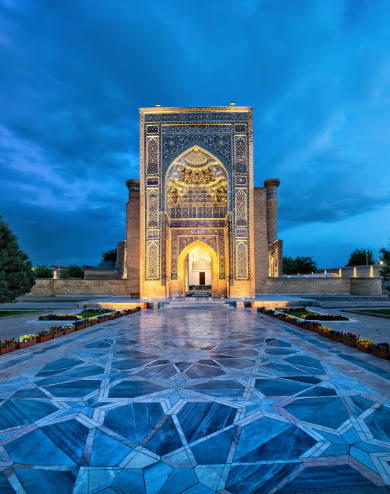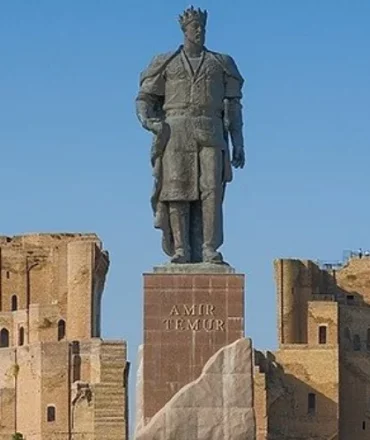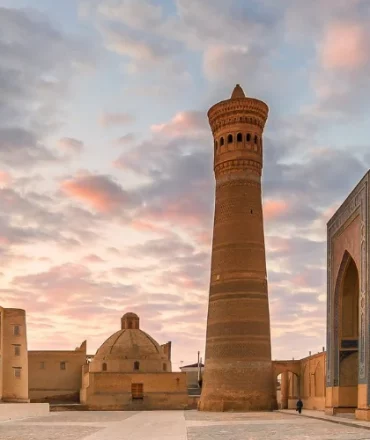Uzbekistan is a Central Asian nation and former Soviet republic. It’s known for its mosques, mausoleums and other sites linked to the Silk Road, the ancient trade route between China and the Mediterranean. Samarkand, a major city on the route, contains a landmark of Islamic architecture: the Registan, a plaza bordered by 3 ornate, mosaic-covered religious schools dating to the 15th and 17th centuries.
Uzbekistan (UK: /ʊzˌbɛkɪˈstɑːn, ʌz-, –ˈstæn/, US: /ʊzˈbɛkɪstæn, –stɑːn/;[13][14] Uzbek: Oʻzbekiston, pronounced [ozbekiˈstɒn]), officially the Republic of Uzbekistan (Uzbek: Oʻzbekiston Respublikasi), is a doubly landlocked country in Central Asia. It is itself surrounded by five landlocked countries: Kazakhstan to the north; Kyrgyzstan to the northeast; Tajikistan to the southeast; Afghanistan to the south, Turkmenistan to the south-west. Its capital and largest city is Tashkent. Uzbekistan is part of the Turkic languages world, as well as a member of the Turkic Council. While the Uzbek language is the majority-spoken language in Uzbekistan, Russian serves as the local lingua franca. Islam is the predominant religion in Uzbekistan, most Uzbeks being Sunni Muslims.[15]
The first recorded settlers on what is now Uzbekistan were Eastern Iranian nomads, known as Scythians, who founded kingdoms in Khwarazm (8th–6th centuries BC), Bactria (8th–6th centuries BC), Sogdia (8th–6th centuries BC), Fergana (3rd century BC – 6th century AD), and Margiana (3rd century BC – 6th century AD).[16] The area was incorporated into the Iranian Achaemenid Empire and, after a period of Macedonian rule, was ruled by the Iranian Parthian Empire and later by the Sasanian Empire, until the Muslim conquest of Persia in the 7th century. The Early Muslim conquests and the subsequent Samanid Empire converted most of the people, including the local ruling classes, into adherents of Islam. During this period, cities such as Samarkand, Khiva, and Bukhara began to grow rich from the Silk Road, and witnessed the emergence of leading figures of the Islamic Golden Age, including Muhammad al-Bukhari, Al-Tirmidhi, al Khwarizmi, al-Biruni, Avicenna and Omar Khayyam.



